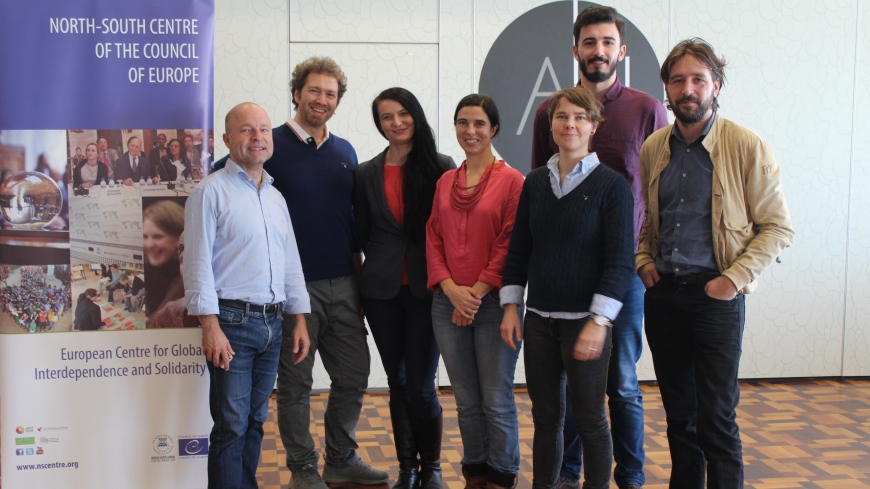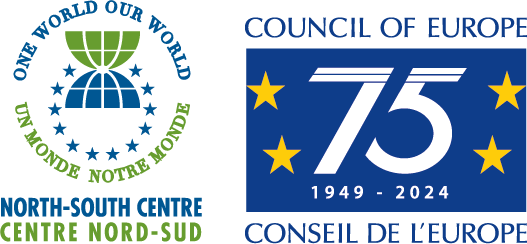Starting in November 2017, the North-South Centre of the Council of Europe joined the global movement to enhance media literacy efforts and established its own Media Literacy Task Force for Global Education Development. Formed by six experts with extensive experience in media literacy and youth knowledge, the task force is a new opportunity to work towards the overall objectives and mission of the North-South Centre, by further developing the medialiteracy dimension of global development education.
During 2018, the task force will work to enforce media literacy as an integral part of global development education, by building bridges between various stakeholders – from education and youth sector to media industry and public institutions - and provide expertise in addressing current global issues like the respect and promotion of fundamental rights, fight against political propaganda or empowerment of young digital citizens.
A Media Literacy Task Force for a new Digital Society
The appearance of the North-South Centre’s Media Literacy Task Force arrives in the context of an increasingly connected global society. With about 3.8 billion Internet users, among which 2.46 billion social media users (2017) – we are dealing with challenges we could not foresee just a couple of decades ago, while we expect to face even more in the recent future, specific to this fast-paced technological society.
Particularly during the past years we have noticed an increased interest in social media platforms as means of expression and political activism, nevertheless, this did not come without a price. The youngest generation (about 40% of the world’s population), born after the appearance of the World Wide Web, became the biggest consumer of this emerging media and disproportionately affected by the messages promoted through these networks, where fake news or misinformation snowball and spread like a virus. Thus, we became witnesses to how our most web-savvy, app-savvy and tech-savvy generation is growing in what is now known as “The Post Truth/Facts Era”.
Media Literacy as means for critical thinking and responsible citizenship
As a result of an overwhelming content which we have to digest – messages, images, videos – a growing number of stakeholders decided to respond with additional educational measures and policy actions by investing in media literacy programmes, especially by positioning it as a viable tool to diminish the possible adverse effects of media and enhance its benefits.
On one of the most comprehensive and updated views on media literacy, the European Commission defines it as “all the technical, cognitive, social, civic and creative capacities that allow us to access and have a critical understanding of and interact with media. These capacities allow us to exercise critical thinking, while participating in the economic, social and cultural aspects of society and playing an active role in the democratic process.”
Therefore, the North-South Centre’s pro-active role in media literacy brings new resources to address this new media climate, where all of us have to learn how to take everything we read with a grain of salt, question information and its sources. This is a new opportunity through which educators, youth workers and youth leaders will be enabled to support our youngest generation understanding the role media plays in their lives and how to become critical media consumers and empowered citizens - able to make informed choices and effectively participate in society.
Objectives of the Media Literacy Task Force
The North-South Centre’s Task Force on Media Literacy has some specific objectives in the framework of the joint programme between the European Union and the Council of Europe - iLegend : Intercultural Learning Exchange through Global Education, Networking and Dialogue. Thus, the three areas in which it will work will include:
1. Advocacy: in the context of Global Education Guidelines’ revision process. While the North-South Centre has been a pioneer in the global education context, it uses this opportunity to further develop the Guidelines with updated knowledge and resources, relevant for this new digital age.
2. Awareness raising: in the context of Global Education Week 2018 (GEW). The Media Literacy Task Force will work closely with the existing GEW network and enrich its experience and outreach by bringing media literacy in both formal and non-formal settings, from schools to other sectors of society.
3. Capacity building: by developing a training module and tool-kit on media literacy for Global Development Education (GDE). The Task Force will have an important role in bringing a new dimension to the already established Global Education Training course, in terms of providing media literacy tools and knowledge for youth multipliers. The tool-kit on media literacy for global development education is one of the first to address the intersectionality of the two concepts, thus, offering new resources to various stakeholders interested in approaching both of them.




